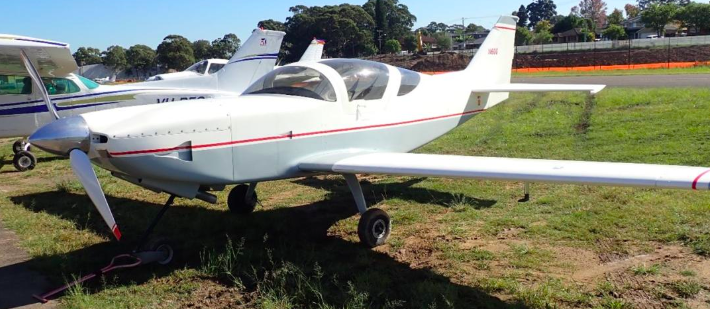Fatal Glasair Accident Highlights Amateur-Built Aircraft Differences

An investigation highlights to pilots planning to fly amateur-built aircraft the importance of being aware of potential differences in systems and controls compared to type-certified factory-built aircraft.
Two pilots were fatally injured when their amateur-built Glasair aircraft collided with terrain shortly after a landing and go-around at Wedderburn aircraft landing area, south-west of Sydney, on 26 December 2022.
The aircraft, a Stoddard Hamilton Aircraft Glasair Super II FT, was powered by a Subaru automotive engine modified for aviation use, and was originally assembled from a kit in the United States.
It accumulated about 60 flight hours before being sold by its original owner to the two pilots, who then had it transported to Australia.
Earlier on the day of the accident, the pilots conducted the aircraft’s first flight since it was reassembled, flying from Bankstown to Temora. While at Temora, the pilots conducted two circuits, before landing and then subsequently setting off for Wedderburn about an hour later.
On arrival at Wedderburn, the aircraft landed and conducted a go-around, during which it failed to achieve sufficient climb performance and impacted terrain about 2.7 km to the southwest of Wedderburn airfield. The two pilots on board were fatally injured.
The aircraft wreckage was consumed by a post-impact fire, limiting the evidence available for ATSB (Australian Transport Safety Bureau) examination. As such, the reasons for the insufficient climb performance after takeoff could not be determined, however the ATSB’s investigation report highlights key safety messages for amateur-built aircraft pilots
“Pilots intending to operate amateur-built aircraft should be aware of the potential differences in systems and controls to that of conventional type-certified aircraft,” ATSB Director Transport Safety Dr. Stuart Godley said.
“They should also use familiarization flights to better understand the systems, controls, and emergency operations specific to the aircraft they are flying, and they should use an appropriate aerodrome, and benign weather conditions, for these flights.”
The ATSB’s final report notes the pilots were both highly experienced in multi-engine fixed wing operations, and both held a valid Air Transport Pilot (Aeroplane) License, but neither had recent experience in single-engine operations, automotive engine conversions, amateur-built aircraft, or the Glasair in general.
The report also notes the pilots elected to operate the aircraft from Bankstown to Temora for its first flight in Australia, despite the aircraft’s special flight authorization not permitting operation over built-up areas.
“Understanding the safety implications of regulatory permissions is vital so that experimental aircraft do not adversely affect the safety of third parties, such as other airspace users and people on the ground,” Dr. Godley said.
Read the report: Collision with terrain involving, Stoddard Hamilton Aircraft Glasair Super II FT, N600 near Wedderburn Airport, New South Wales on 26 December 2022, publication date: 12/12/2023.
Learn how to prevent accidents at your workplace and how to implement a protocol of safety through TapRooT® Root Cause Analysis.



